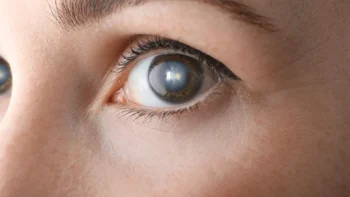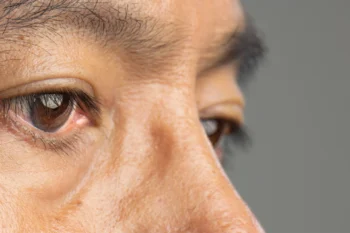If your vision is cloudy and you’re finding it hard to see, you may have a cataract causing damage to the eye lens. Your doctor may recommend correcting the problem by replacing the damaged lens with an artificial one to recover clear vision.
The eye lens is usually clear but can become cloudy with age. Cataract surgery is an outpatient procedure performed by an ophthalmologist to remove and replace the damaged lens. It is a standard and overall safe procedure.
Who Gets Cataract Surgery?
Surgery is not necessarily needed if you have cataracts. Some people may not even notice vision differences. Prescription glasses, brighter lights, or the use of a magnifying glass may mask the symptoms. However, cataract surgery may be advised if you have problems with vision that affect activities like reading or driving.
An ophthalmologist can remove your cataract to see the back of your eye. They can also manage eye conditions like:
- Diabetic retinopathy
- Retina changes due to age
As cataracts grow, more symptoms occur. Seeing in dim lighting may be difficult, or your vision may become blurry. Double vision can occur when looking through the cataract. This can make reading, computer work, and any task that requires clear vision difficult.
Your ability to see at night may also be affected by cataracts. They can make driving dangerous. You may also develop a sensitivity to headlight glare. Sensitivity to the glare of the sun is also associated with cataract growth. This can interfere with your beach time and sports like golf or skiing.
When first diagnosed, eyeglasses or contacts may help. But eventually, to do all the things you have grown accustomed to, your doctor may decide to move forward with cataract surgery.
How Does Cataract Surgery Work?
Cataract surgery is quick and painless and is done on an outpatient basis. The procedure is around 30 minutes long, and you can go home right after. Though you will be awake for the surgery, the surface of your eyes will still be numbed with anesthesia. If you are anxious, your doctor may also give you a sedative that will help you to relax.
First, your doctor will administer the anesthetic via eye drop or injection. You will be able to see light and movement during the procedure. If this makes you anxious, a sedative will be given at this time. You will not see your doctor during the procedure.
Next, the cataract is taken out. The surgeon will use a specialized microscope to observe your eye during the operation. Small incisions are made in the eye to expose the lens. Ultrasound waves are then used to crumble the lens and remove it. The old lens is then replaced with a new one made of silicone, plastic, or acrylic.
Recovery afterward is simple. Stitches will not be needed because the small incisions heal and close on their own. Before you leave the doctor’s office, they will place a dressing on your eye for protection. Even though you will not stay overnight in the hospital, someone will have to drive you home. You will sleep in your eye covering to continue providing protection and proper healing. After about eight weeks, the eye should be completely healed. If both eyes have cataracts, you will need two separate surgeries, usually scheduled a few weeks apart. This allows the first eye an opportunity to heal.
Side effects are infrequent, but there is a potential risk for bleeding, swelling, infection, eyelid drooping, retinal detachment, or a brief rise in eye pressure within 24 hours. Occasionally after the surgery, you may notice things are looking cloudy again due to a thickening of the capsule that holds your lens in place. This can be considered a secondary cataract. The medical term is p osterior capsule opacification (PCO). PCO can be treated with a simple, painless procedure called yttrium aluminum garnet (YAG) laser capsulotomy. The YAG represents the crystal used when generating the laser beam. In this procedure, a laser makes a small incision in the capsule to allow light to pass through. The process takes only 5 minutes, and after a brief monitoring period, you can leave the office.
Is Cataract Surgery Beneficial?
Any surgery can carry risks, but cataract surgery is very low-risk. A minimal number of patients will have complications. An even smaller amount will have serious complications. Caring for your eyes post-surgery will prevent this. You will need to take all prescribed anti-inflammatory and antibiotic eyedrops.
Cataract surgery is safe, painless, and fast. The surgery works almost immediately and is the most effective cataract treatment because the entire damaged lens is removed and replaced by an artificial one. The artificial lens, or intraocular lens (IOL), will allow you to see even better than before. There is a wide range of synthetic IOLs, including monofocal IOLs, multifocal IOLS, accommodative IOLs, and toric IOLs. Though there are numerous options to choose from, your ophthalmologist can guide you.
Cataract surgery has a high success rate, with about 90% of those who undergo the procedure noting the surgery as a success, who found their eyesight had significantly improved. No eyedrops or other medications can remove the cataract or sharpen your eyesight. Post-surgery you will:
- See more clearly
- Have reduced glare from all lights
- Be able to better distinguish between colors.
Cataract Surgery Las Vegas: Brimhall Eye is Your Answer
Brimhall Eye is an ophthalmology practice in Las Vegas, Nevada. The practice does not offer vision exams, glasses, or any services typically associated with optometrists. The professionals at Brimhall will work with you to find beneficial options for your eyes. There are many surgical and non-surgical procedures available. The practice has offices at several different locations. The primary practitioner is Dr. Brett Brimhall. The practice focuses on eye surgery, including cataract surgery, LASIK, PRK, and other forms of surgical vision support. They will work with your budget and ensure that your vision needs are met.





